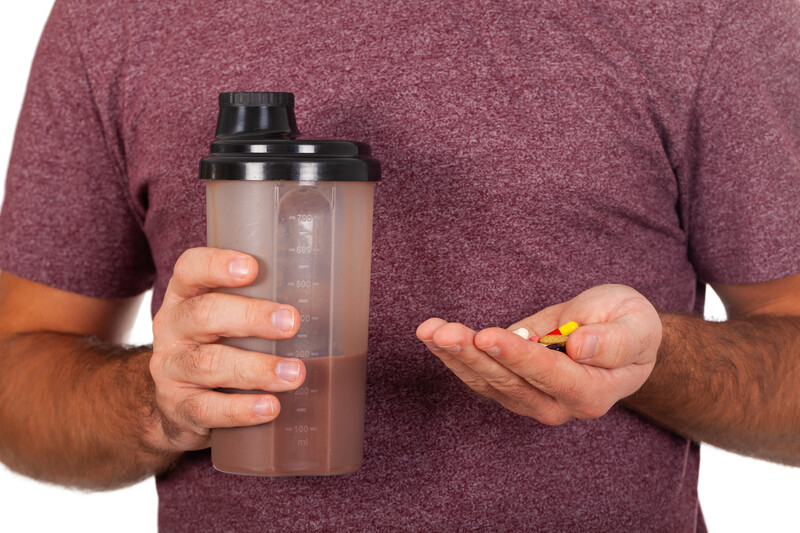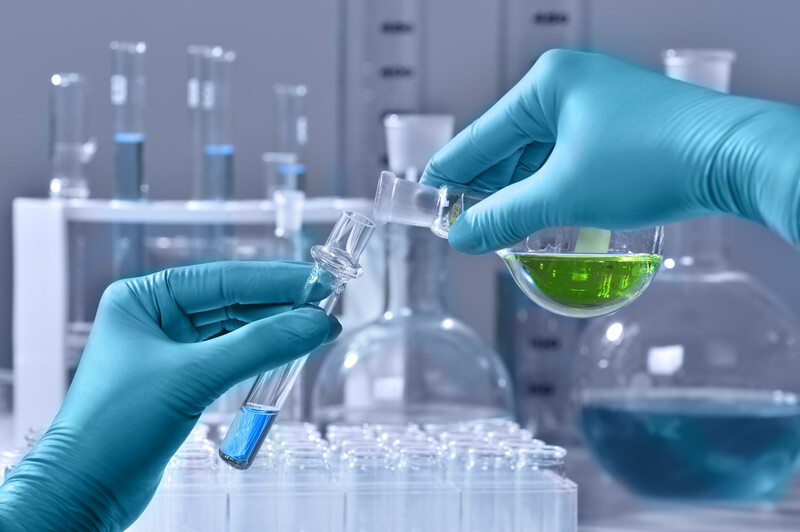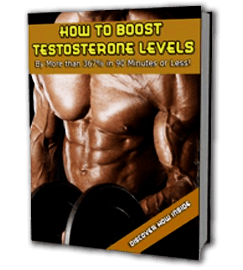(Article Medically Reviewed By Dr. Zach Hyde)
DAA, more officially known as D-Aspartic Acid, is an amino acid used by our bodies to synthesize proteins.
Several years ago, it earned a reputation as a natural testosterone booster, much to the delight of bodybuilders, men’s health advocates, and supplement companies.
However, is DAA really all it’s cracked up to be?
Does D-Aspartic Acid Increase Testosterone?
I’ve spent years partnering with only the very best supplement companies on the market.
These are businesses that source real, natural ingredients and that pay close attention to the science behind the products they sell.
In fact, when you see a supplement company mentioned on this site, you can rest assured they’ve been adequately vetted as a top-level supplier.
But all supplement companies are not created equal – and DAA is a perfect example of why.
You see, it turns out that some of the brands who helped initiate the “DAA Testosterone Craze” were actually drawing their scientific evidence from studies that they themselves sponsored.
After that, they relied on the media-friendly acronym of DAA and some flashy supplement designs (often named after steroids) to create a multi-million-dollar windfall.
By now, researchers have had a lot more time to investigate DAA without funding from these dishonest pill pushers.
And guess what?
They’re not only finding that the substance is ineffective but that it might actually be damaging to testosterone production.
In the rest of this article, we’ll outline all the details you need to decide about DAA yourself.
D-Aspartic Acid and Testosterone Production
A fellow men’s health enthusiast of mine bought into the hype surrounding DAA back in 2014.
At that time, many of the companies pushing the product were presenting biased research as legitimate, so this was due to no fault of his own.
Luckily, his experience in the supplement field proved invaluable when it came to figuring out that something wasn’t right.
It was after the first three or so weeks of taking the supplement that my colleague started noticing some testicular pain, which he likened to the sensation of “blue balls.”
Fortunately, he had the wherewithal to discontinue the use of the product while he looked into the cause.
Initially, he chalked the pain up to an increase in sperm production and T synthesis, which was advertised by the DAA suppliers.
However, he found it curious that he hadn’t noticed any increase in libido or other indicators of increased T production.
So, he did some more investigating.
How Faulty Research And D-Aspartic Acid
I should point out that there’s plenty of reason to assume that DAA may act as a testosterone booster.
Studies conducted in animals and in-vitro show that the amino acid was effective at stimulating the release of GnRH.
It has also been shown to increase the production of steroidogenic acute regulatory protein (StAR) in the Leydig Cells of the testicles.
By all accounts, this should result in improved T production. In fact, as far as animals were concerned, it did.
But this doesn’t always translate to humans, even if some people had a vested interest in making sure it did.
Without getting “tin foil hat” on you, it’s worth noting that the very first study into DAA’s effectiveness in human men was sponsored by DADAVIT, a DAA manufacturer.
To their delight, the study showed that a dosage of 3.12 grams a day led to increased levels of LH and testosterone.
In the case of the latter, T levels were higher by 15% at the three-day mark and 42% at the 12-day mark.
However, after supplementation stopped, these levels dropped back down to 22%.
Unfortunately, this study became the basis for a claim that DAA supplements increased T levels by up to 142%.
Now, I’m no Good Will Hunting, but 42% is not the same as 142%, and I don’t think that error can be chalked up to a “typo.”
DADAVIT wasn’t done, however.
The company published another study in 2017, this time using men who suffered from varying degrees of infertility.
Conveniently, the results showed an increase in T production of about 30-60% over three months, solidifying the amino acid’s efficacy in the eyes of most men’s health advocates.
But what about the studies that DADAVIT didn’t sponsor?
Well, back in 2013, independent researchers found out that supplementing DAA for 28 days along with resistance training had no effect on free-testosterone levels.
In fact, there was a significant increase in the oxidase enzyme (DDO) related to aspartic acid, which suggested that the DDA in the subjects’ tissues was actually being rendered inactive by the body.
This was bad news enough, but continued studies showed that DAA not only had zero effect on T-levels in men, but doubling the dose from 3 grams to 6 grams actually resulted in lower levels of both free and total testosterone!
Care to guess how many of their 3000 mg (3g) pills the supplement companies were recommending you take per day?
In most cases, two. But, in some cases, as many as four!
Were you to follow these instructions, you’d be doing untold amounts of damage to your testosterone levels without even knowing it.
Theories as to Why DAA Doesn’t Work
There’s no general consensus yet as to why DAA has this effect on T levels.
However, looking at the increase in DDO, it’s possible that the supplement is quickly degraded by the body into inactive metabolites.
This could have the effect of deactivating any naturally occurring DAA in the body, causing testosterone to fall below the level it was before supplementation began.
There’s also a distinct possibility that DAA might increase estrogen levels by upregulating the aromatase enzyme in the testicles.
Of course, most T-boosters actively inhibit aromatase, so having the opposite effect would cause testosterone levels to decline and estrogen levels to rise.
It should be noted, however, that animal studies into this possibility are yet to show any increases in estrogen levels.
Does D-Aspartic Acid Increase Testosterone Conclusion
When it comes to D-aspartic acid, you can’t blame the researchers who thought that it seemed like a legitimate T-booster.
You also can’t blame the customers who bought into the well-publicized, sleek marketing hype about how the supplements would affect their workout game.
Indeed, those first few human studies seemed promising – at least until you put them (and their sponsor) under the microscope.
But thanks to the hard work of independent researchers, we now know that DAA is not all it’s cracked up to be.
In fact, taking it in the dosages recommended by most pill suppliers will actually suppress testosterone production and hinder all the benefits you’re trying to attain.
So the most I can tell you at this point is to avoid DAA like the plague.
There are better supplements out there, and they’re backed up by research conducted in the best interest of the customer, not the manufacturer.




